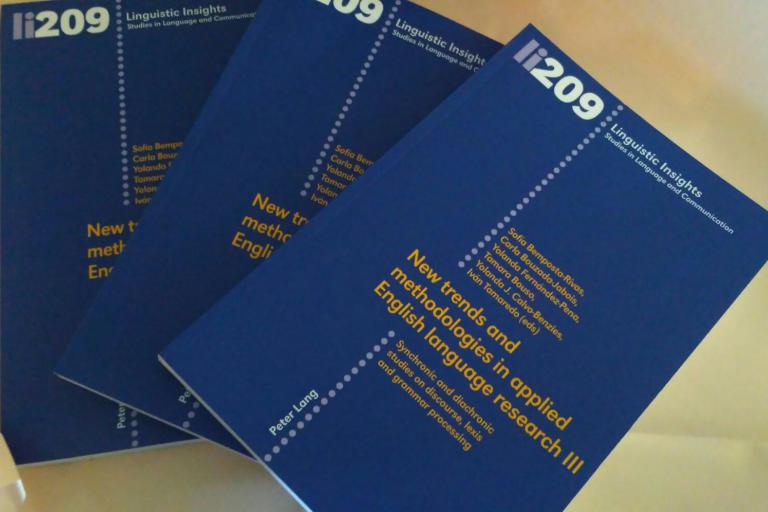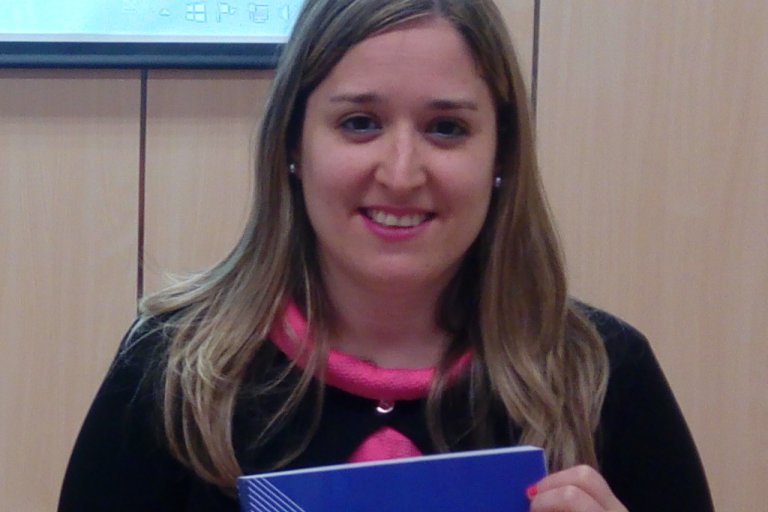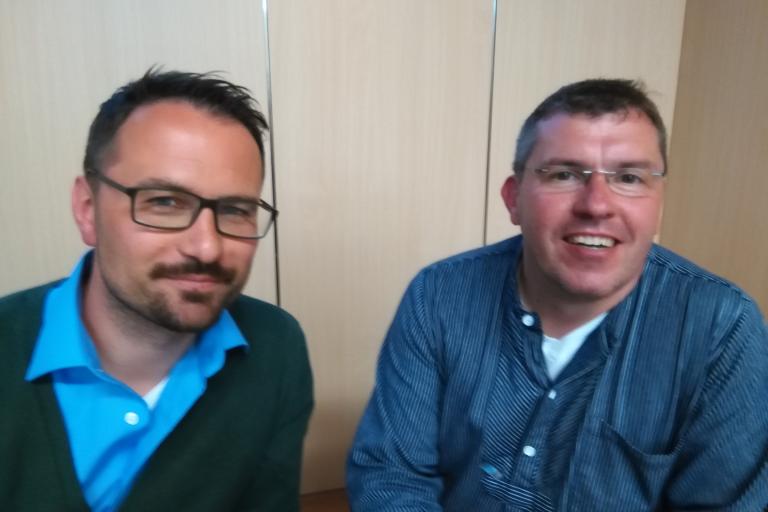On April 23 2012 Dr Graeme Trousdale taught the seminar "Constructionalization and constructional changes in the history of English".
CV details
Graeme Trousdale is Senior Lecturer in the Department of Linguistics and English Language at the University of Edinburgh, where he teaches both at undergraduate and graduate level. Dr Trousdale studied English Language and Literature at the University of Manchester before moving to Edinburgh to complete a postgraduate programme. In 2000 he obtained his PhD with a dissertation entitled Variation and (socio)linguistic theory: a case study of Tyneside English. He has been a guest lecturer in Sociolinguistics at the University of Glasgow, and has taught in Italy and India as part of various exchange programmes. His research interests cover a broad number of topics, ranging from Grammaticalization and lexicalization in English through to Non-standard varieties of English and Educational Linguistics. He has also done extensive work in the field of Construction Grammar.
Dr Trousdale's most recent publications include Introduction to English sociolinguistics (Edinburgh University Press, 2010) and Gradience, gradualness and grammaticalization, co-edited with Elizabeth Traugott (John Benjamins, 2010). He will soon be presenting the Handbook of Construction Grammar (Oxford University Press), co-edited with Thomas Hoffmann. At the moment he is working with Elizabeth Traugott on a volume which has been given the provisional title Constructionalization and constructional changes.
Outline of the seminar
This seminar provided an introduction to aspects of diachronic Construction Grammar, and its application to changes in the history of English. Particularly, it concentrated on the notion of constructionalization, the creation of new form-meaning pairings as a product of micro neo-analyses. These new constructions may be of varying degrees of schematicity and complexity, and may encode procedural meaning, referential meaning, or some combination of the two.
The first part of the seminar provided a general introduction to aspects of Construction Grammar, particularly those aspects which are of relevance to the kinds of language change to be discussed in the second part. Graeme Trousdale argued that constructional knowledge is best represented as a network of nodes linked in a prototype-based inheritance hierarchy, and that constructional change may involve change in nodes (the constructions themselves), in links between nodes, or both. In contrasting constructional change with constructionalization, he also discussed related phenomena like grammaticalization, lexicalization and degrammaticalization.
The second part of the seminar considered three case studies. The first involved grammatical constructionalization – the development of the what with construction (e.g. what with the kids, we can’t take a holiday this year) – where a new procedural marker has emerged since the late Middle English period. The second was the development of the noun forming suffix –dom (as in wisdom andkingdom) as a kind of lexical constructionalization, where a new derivational suffix arises. The third was the development of composite predicate constructions such as he gave him a tongue-lashing 'he chastised him', which was shown to have properties of both grammatical and lexical constructionalization.







